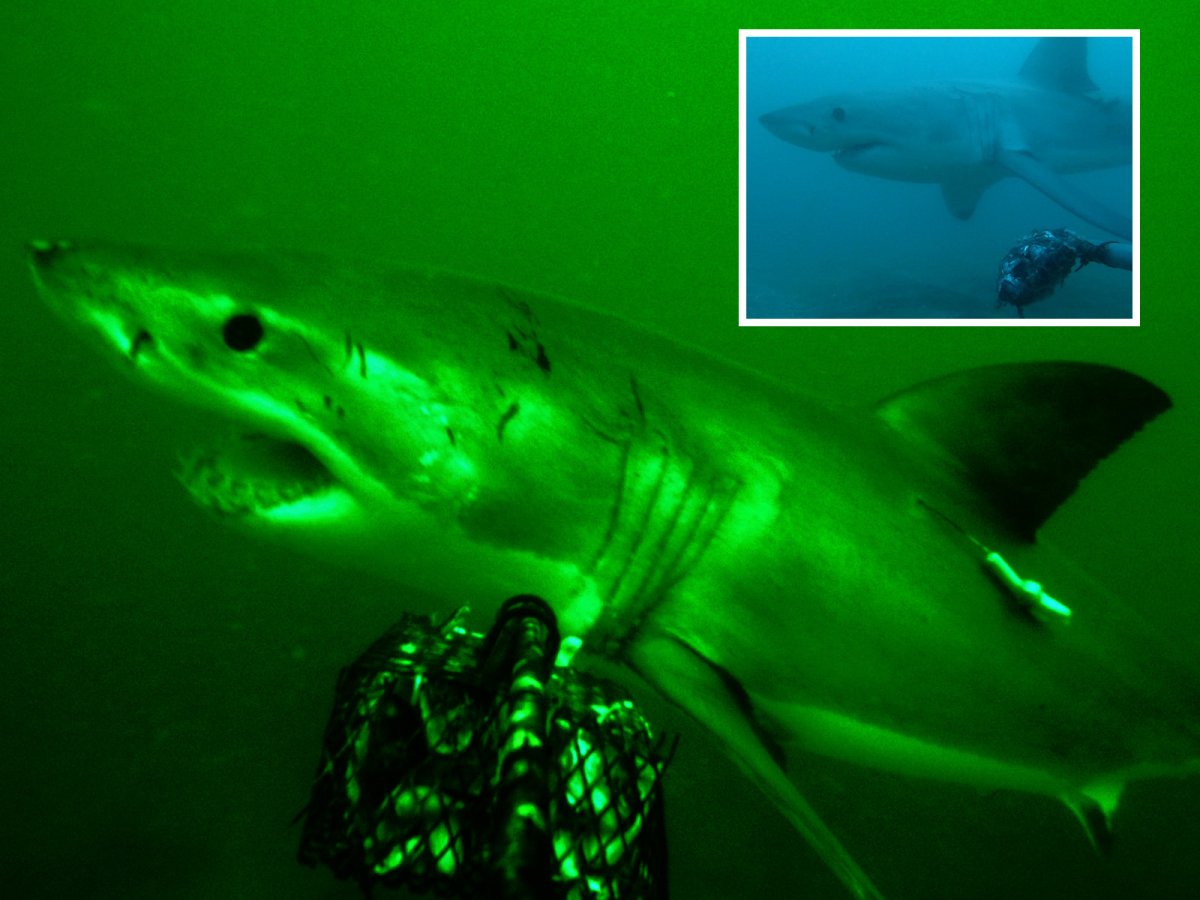A great white shark with a face covered in scars has been filmed leaving the South African coast where killer whales continue to terrorize the species.
The shark captured in the footage—which was taken by the Wildlife Conservation Society (WCS) and the Instituto Oceanográfico de Moçambique—has been matched as the same individual previously observed swimming off Struisbaai, in South Africa, in May 2022.
Scientists confirmed that this young shark had traveled a total of 1,100 miles along the African coast.

They were able to match the shark to previous records based on its distinct facial scars and matching fin coloration. Two side by side pictures of the shark taken in May 2022, and more recently, clearly show the same scars covering its head.
Struisbaai is located on the Western Cape of South Africa—a stretch of coast that has seen gruesome orca attacks on great white sharks in recent years.
Washed up great white shark carcasses have shown scientists that the orcas are tearing them apart to get to their liver. Shortly after the attacks began, great white sharks begun disappearing from their previous hotspots.
False Bay, a body of water in the south-west of South Africa, used to be home to an abundance of great white sharks. But in recent years, they have all but gone from the area. Some scientists believe this is due to killer whale predation.
But Rhett Bennett, principal investigator on the survey project in Mozambique, told Newsweek that the scars on this sharks face were likely caused by another shark.
"The scars on the shark's face are likely caused by an interaction with another shark, or during a predation attempt, perhaps on a seal," Bennett said. "It is common among apex predators, such as white sharks and lions, to have facial scars like these. They often remain evident for long periods, allowing the animals to be individually identified."
Bennett also said in a press release that this observation has "great value" to shark science and conservation, as it confirms a "transboundary movement, on the scale of thousands of kilometers, of a threatened shark species."
Great white sharks are an elusive species, meaning it is difficult for scientists to track their movements. Camera traps such as this help experts learn more about the species movements and behaviour amongst the threats they face.
Alison Towner, the principal investigator on the white shark tagging study in South Africa said in a press release: "This important ID match and confirmation of transboundary movement has come at a time that the Southern African white shark population is facing the additional threat of orca predation on top of other anthropogenic threats such as shark nets. It's a great example of collaboration between different research platforms."
Uncommon Knowledge
Newsweek is committed to challenging conventional wisdom and finding connections in the search for common ground.
Newsweek is committed to challenging conventional wisdom and finding connections in the search for common ground.
About the writer
Robyn White is a Newsweek Nature Reporter based in London, UK. Her focus is reporting on wildlife, science and the ... Read more
To read how Newsweek uses AI as a newsroom tool, Click here.








